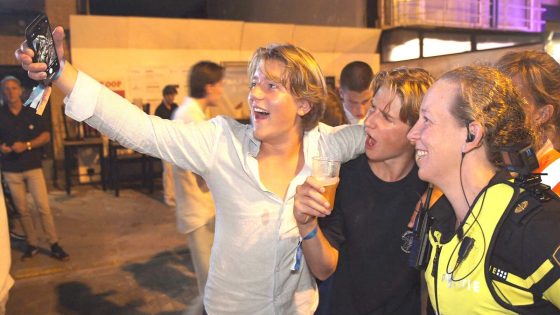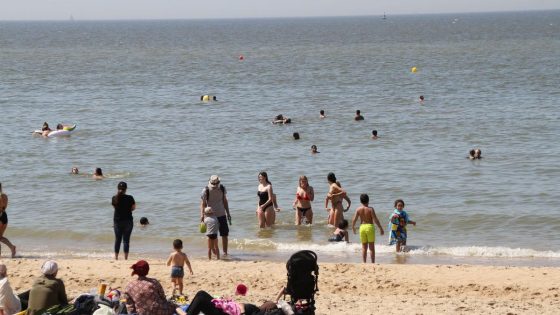Knokke-Heist is once again preparing for the annual influx of Dutch youth during the so-called ‘Nederlandse week,’ a time when teenagers from the Gooi and Vechtstreek region visit this West Flanders seaside resort. This week, often marking their first vacation without parental supervision, brings unique challenges and opportunities for local authorities. As of 2025-07-16 09:48:00, the presence of Dutch youth police officers in Knokke-Heist highlights the ongoing cooperation between Belgium and the Netherlands to ensure a safe environment.
- Jeugdagent begeleidt Nederlandse jongeren tijdens vakantie
- Knokke-Heist trekt jongeren door lagere drinkleeftijd
- Nederlandse agenten ondersteunen Belgische politie zichtbaar
- Jeugdagent bouwt vertrouwen met lokale jongeren
- Nederlandse jongeren zijn mondiger dan Vlaamse leeftijdsgenoten
- Politie balanceert tussen uitgaansplezier en bewonersrust
The attraction for these young visitors is clear: in Knokke-Heist, alcohol consumption is permitted from age 16, unlike in the Netherlands. This difference leads to increased drinking among the teenagers, which can sometimes result in disturbances. How can Belgian authorities balance the needs of local residents with the lively energy of Dutch holidaymakers? And what role does the Dutch youth officer play in maintaining order?
Understanding these dynamics is key to appreciating the collaborative policing efforts underway, setting the stage for the Fast Answer below.
Why is the presence of a Dutch youth officer so important in Knokke-Heist? The officer’s familiarity with the young visitors fosters trust and effective communication. This approach helps prevent excessive alcohol use and disorderly conduct. Key points include:
- Dutch youth are more outspoken and responsive to a Dutch-speaking officer, easing conflict resolution.
- Access to Dutch police databases allows better identification and handling of repeat offenders.
- Belgian police adopt a more distant approach, making Dutch officers’ active engagement crucial.
- Maintaining harmony between nightlife and residents’ quality of life remains a priority.
Looking ahead, continued collaboration and clear communication with young holidaymakers will be essential to keep Knokke-Heist a safe and enjoyable destination. Could this model inspire other Belgian coastal towns facing similar challenges? Only time will tell, but the current strategy sets a promising precedent.































